One of the great and unexpected things I've found about late winter (or very early spring if you're quite optimistic) is the way that many plants turn unusual colors. Unusual and wonderful!
This probably has something to do with the plants starting to readjust their internal chemistry for the coming warmer weather -- going from the "I'm not doing much but keep me alive" antifreeze-like mix, to the "full of stored starches for maximum energy"formulation that rewards us plant lovers with explosive growth in spring.
Some of the color changes are subtle and don't last too long, so you have to pay attention and enjoy while you can. This was the plant whose coloration I noticed first this year:
It's creeping Jenny (Lysimachia nummularia 'Aurea'), and I don't know that I've really seen it this wonderful bronze color before. Its new foliage is bright golden yellow, fading to green in mid-summer. I really love this brownish color (especially as a contrast to mid-summer greens), and try to grow sweet potato vines in this same color each summer.
The creeping thymes always put on a great color show as winter ends:
To figure out which variety this is I'd really have to dig through my records, and then would probably just need to guess -- I had a lot of different types and moved them around a lot.
As with the creeping Jenny, I don't know if I've ever seen this plant with such a dark purple coloring before. Of course I may have just never noticed it in prior years, as this is not a huge plant and is tucked away near one staircase to the patio. It has dark green leaves for most of the year.
Another creeping thyme:
This is Thymus 'minus', which is my favorite choice for the cracks between the walkway stones. It too is getting a purple tint right now.
And if shades of purple don't do it for you when it comes to thymes, how about golden?
This is supposed to be 'Archer's Gold' thyme, but it only shows golden leaves in very early spring, then turns regular green for most of the year. In fact when I first bought this I really wondered why it was called 'Gold' -- it turns out that I wasn't looking at the right time of year.
Even the hated but almost impossible to eradicate Euonymous gets colorful now:
If it's red that you want though, 'Dragon's Blood' sedum is the way to go:
This one greens up a bit more once it gets warm, but still keeps the red tints. It doesn't stay quite this red though.
Similarly Sedum 'Angelina' gets some nice reddish-orange highlights as winter wanes:
It too fades in spring to a more uniform color, more of a chartreuse.
The Ajuga reptans that I salvaged from my neighbor's lawn years ago has been such a nice groundcover in the right spot:
It's hard to argue with the color too, and unlike many of the other plants in this post it actually keeps this coloration throughout the year.
Finally, my fernspray false cypress (Chamaecyparis obtusa 'Filicoides'):
This thing changes colors in an alarming way at this time of year, taking on a brown "hey look, I'm dying" color:
The first couple of years I was quite worried about this (especially when combined with the normal amount of dieback lower down most of its branches that is almost this same color) but now I know not to panic.
It will green back up very soon. It's quite a nice color though -- as long as you expect it.
But that's part of what makes these late winter colors so wonderful: they are unexpected.
So nice though!
.
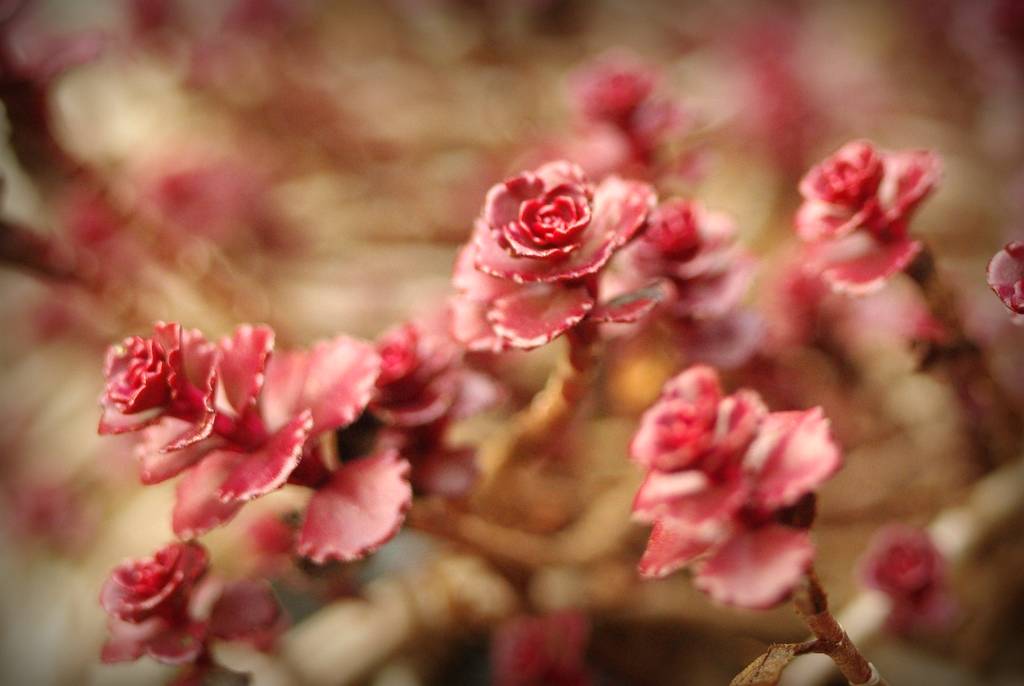
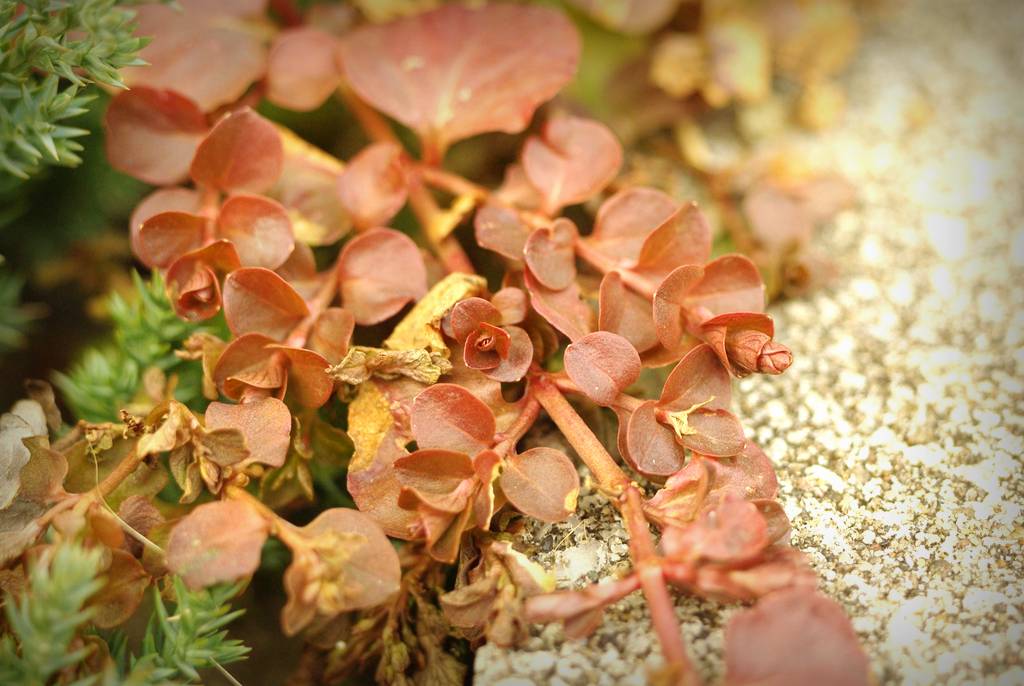
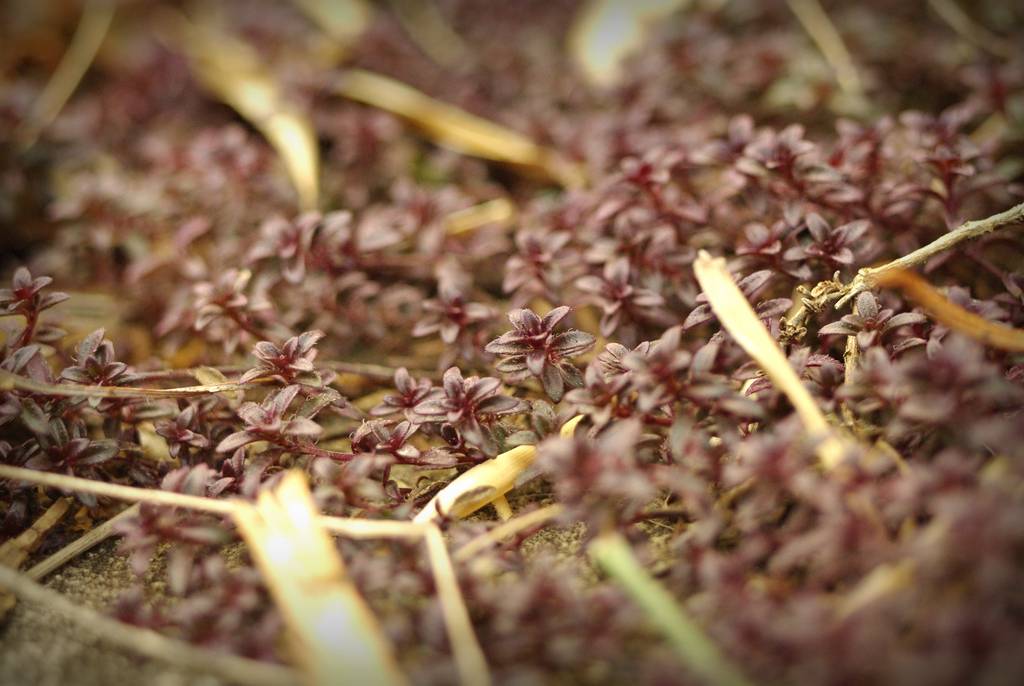
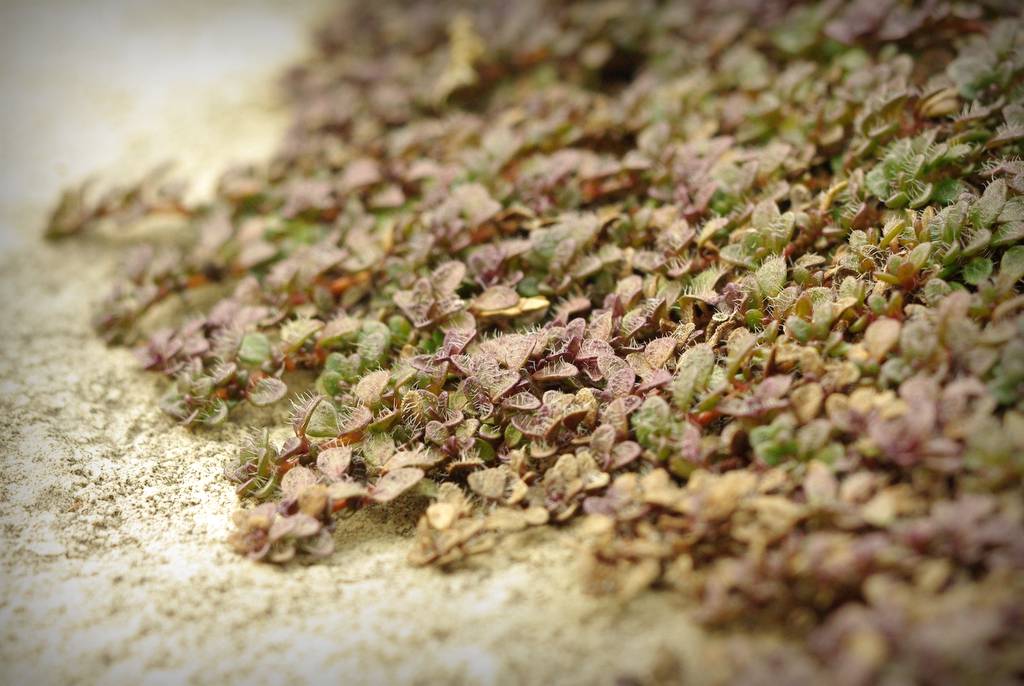

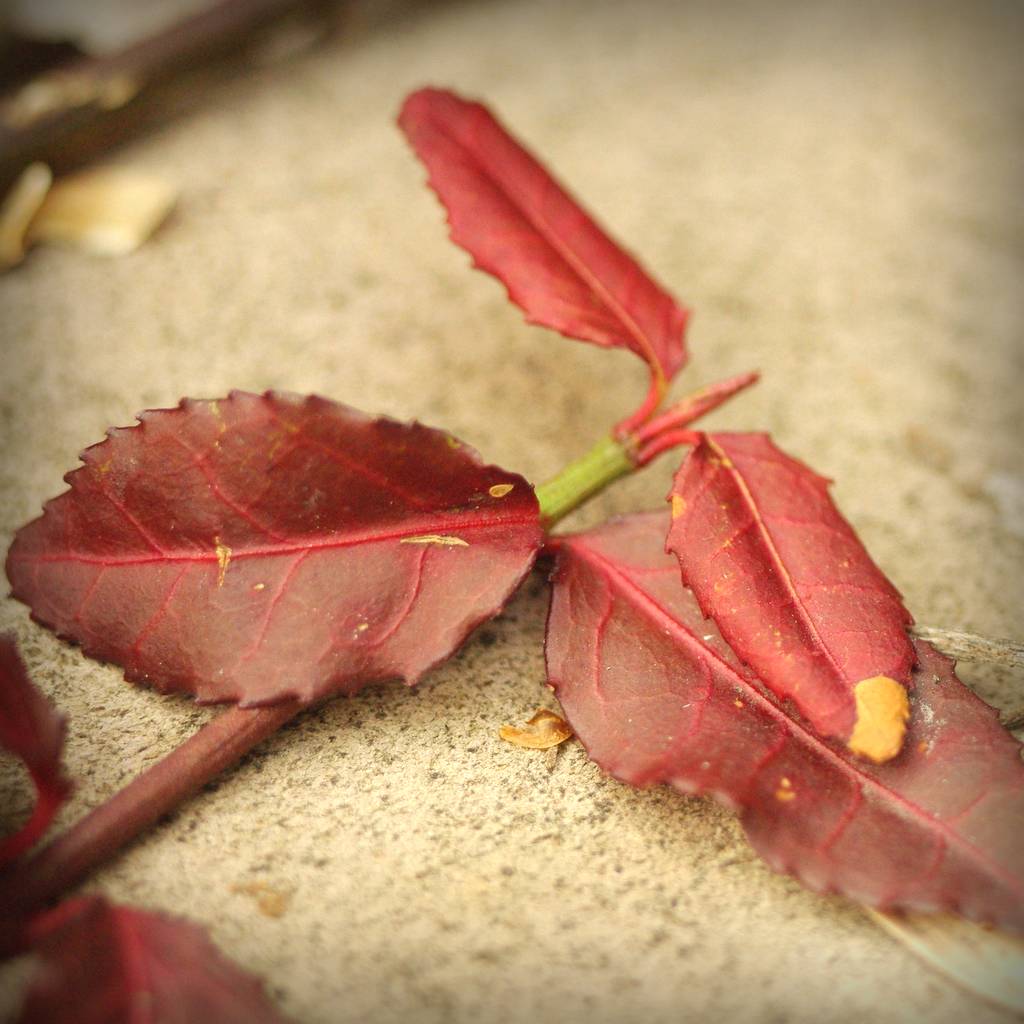

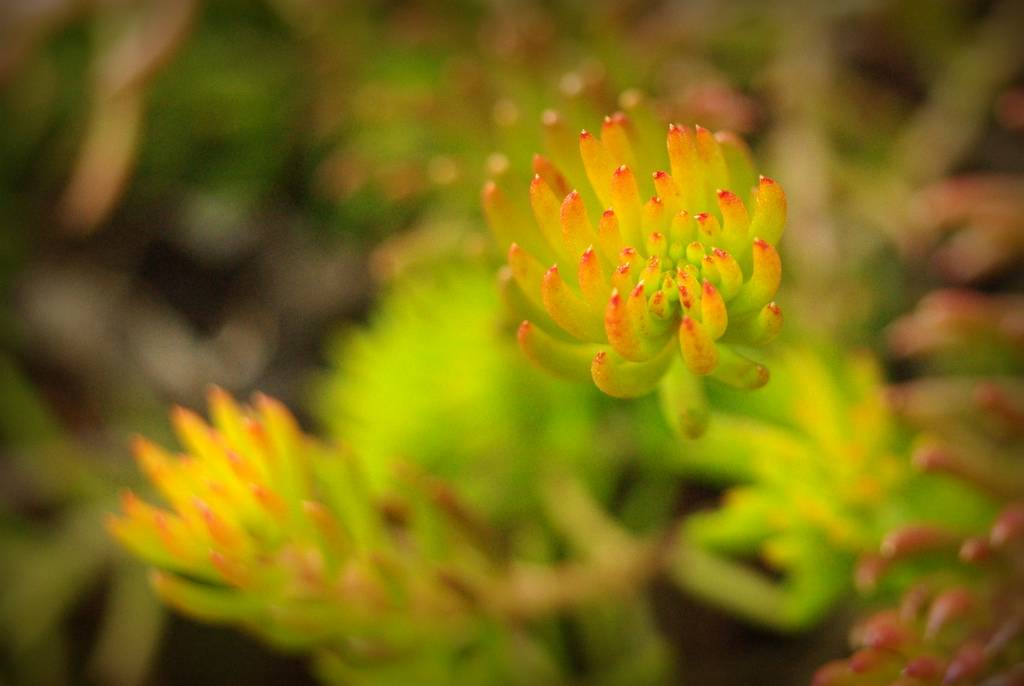
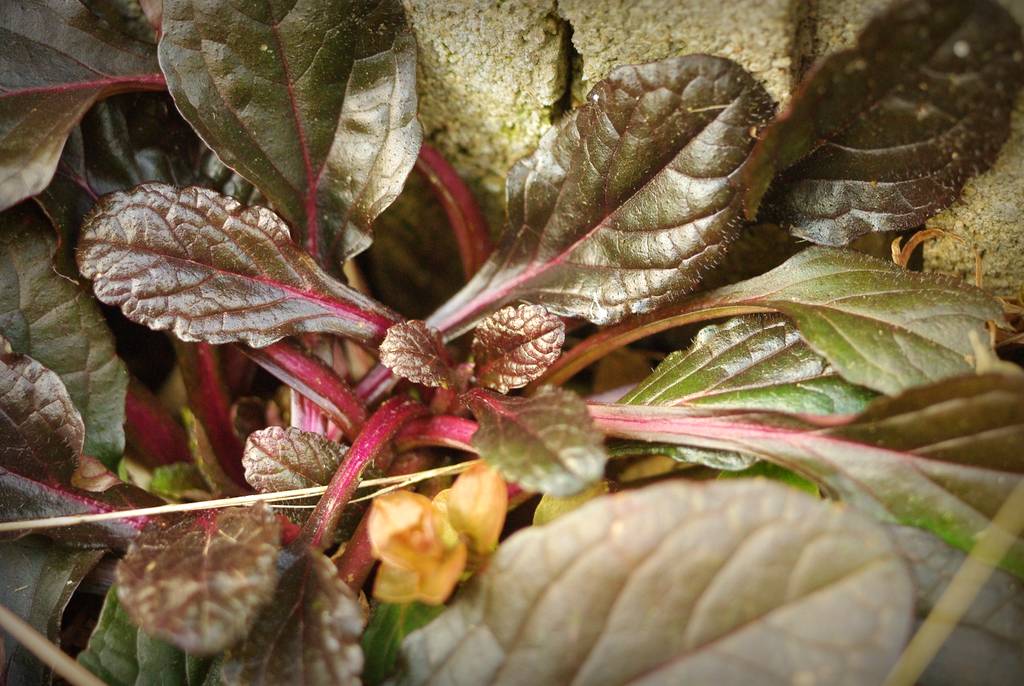
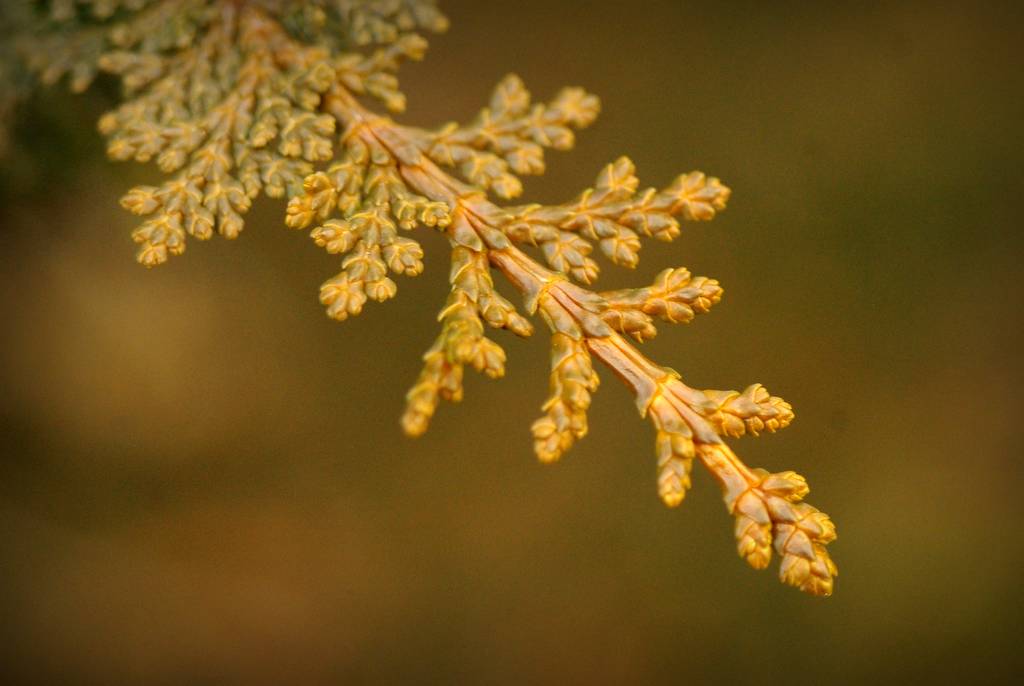
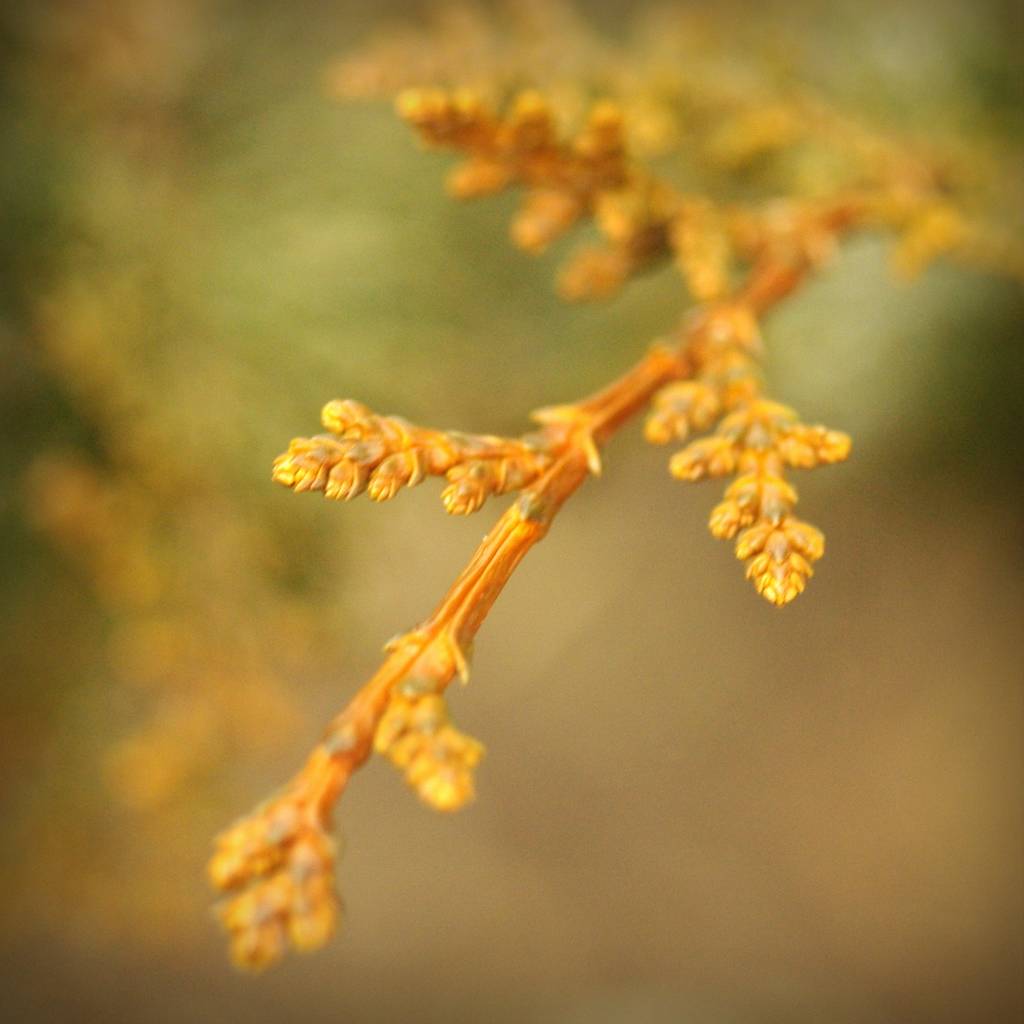
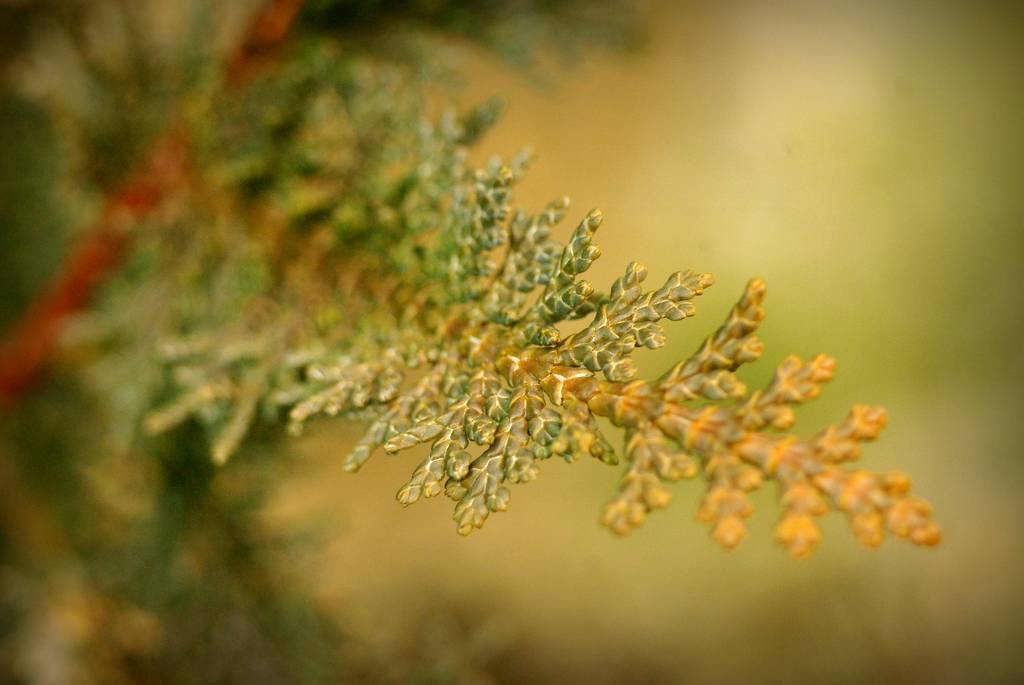
Sedum and Ajuga are beautiful in the way they change their colors throughout the different seasons. I like your golden thyme as well. Spring is on the way so soon the cypresses will get their new golden/green growth-can't wait! Nice colors in your garden.
ReplyDeletenice close-ups!
ReplyDeletexoxo, Juliana | PJ’ Happies :) | PJ’ Ecoproject
I have a bunch of Thymes I planted last year. Right now they are completely dormant, but after this post I'll be watching them closely as they transition to spring.
ReplyDeleteI am so glad I found your site researching why my Archer's Gold turned green for so long, thinking it may be the pH. You may also enjoy as I do the changing colors of bamboo.
ReplyDelete